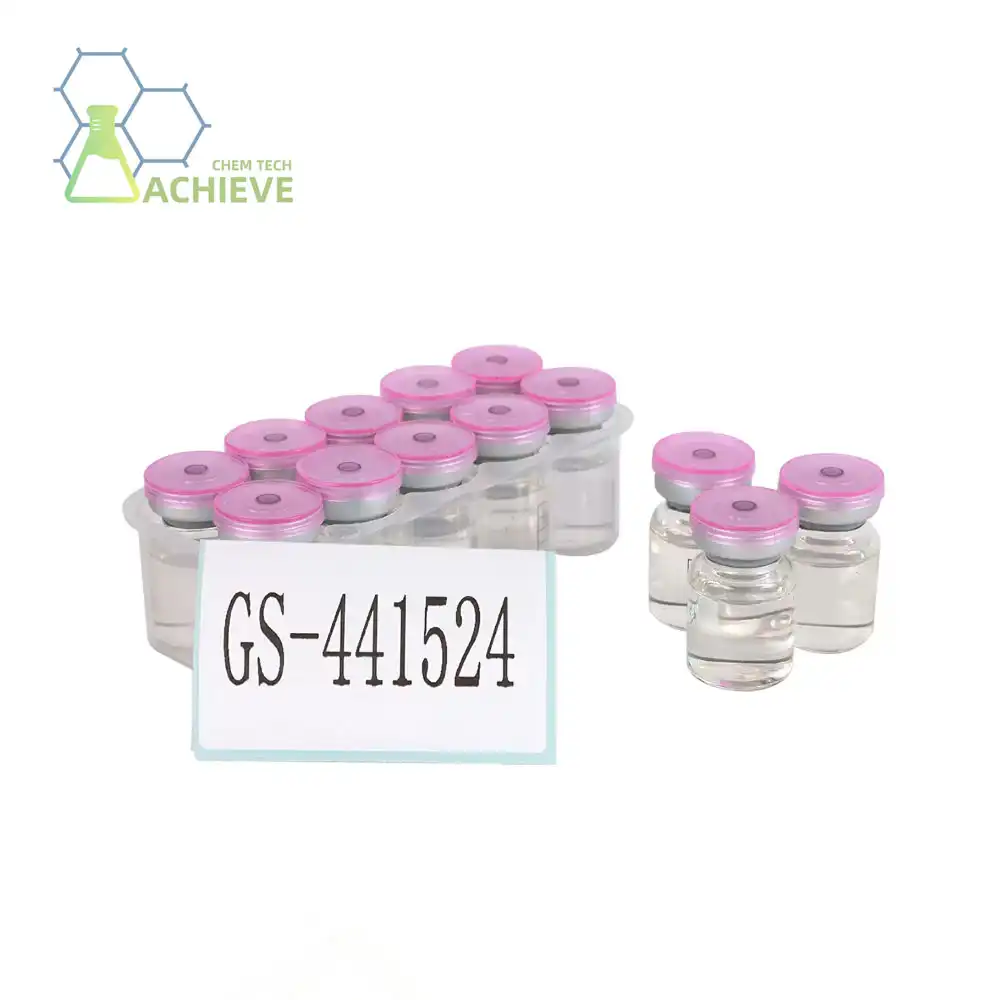Pharmaceutical applications of spermidine trihydrochloride
The pharmaceutical industry has shown a growing interest in spermidine hydrochloride due to its potential therapeutic properties. Researchers have been investigating its efficacy in various medical applications, including:
- Anti-aging therapies: Studies suggest that spermidine may have anti-aging effects by promoting autophagy, a cellular process that removes damaged components and helps maintain cellular health.
- Cardiovascular health: Some research indicates that spermidine supplementation may support heart health by reducing blood pressure and improving vascular function.
- Neurological disorders: Preliminary studies have shown promising results in using spermidine to address neurodegenerative conditions such as Alzheimer's and Parkinson's disease.
- Cancer research: Scientists are exploring the potential of spermidine in cancer prevention and treatment, as it may inhibit tumor growth and enhance the effectiveness of certain chemotherapy drugs.
- Immune system modulation: Spermidine has been found to have immunomodulatory effects, potentially benefiting individuals with autoimmune disorders or weakened immune systems.
These pharmaceutical applications highlight the versatility of spermidine HCl in addressing various health concerns. As research progresses, we may see an increase in the development of spermidine-based medications and supplements.
Can spermidine trihydrochloride enhance drug stability?
One of the lesser-known but equally important applications of spermidine trihydrochloride is its potential to enhance drug stability. This characteristic makes it a valuable asset in pharmaceutical formulations and drug delivery systems. Here's how spermidine trihydrochloride can contribute to improved drug stability:
- pH buffering: Spermidine trihydrochloride can act as a pH buffer, helping to maintain optimal pH levels in drug formulations. This is crucial for preserving the chemical integrity and efficacy of certain medications.
- Antioxidant properties: The compound exhibits antioxidant properties, which can help protect sensitive drug molecules from oxidative stress and degradation during storage and administration.
- Stabilization of nucleic acids: Spermidine trihydrochloride has been shown to stabilize DNA and RNA molecules, making it valuable in the development of gene therapies and nucleic acid-based drugs.
- Improved solubility: In some cases, the addition of spermidine trihydrochloride can enhance the solubility of poorly soluble drugs, potentially improving their bioavailability and therapeutic efficacy.
- Extended shelf life: By mitigating factors that contribute to drug degradation, spermidine trihydrochloride may help extend the shelf life of certain pharmaceutical products.
|
|
|
The ability of spermidine trihydrochloride to enhance drug stability is particularly valuable in the development of complex formulations and novel drug delivery systems. This property has led to increased interest in incorporating the compound into various pharmaceutical products to improve their overall performance and longevity.
Research-grade vs. industrial uses
Spermidine HCL finds applications in both research and industrial settings, with each domain having its unique requirements and uses. Let's explore the distinctions between research-grade and industrial applications of this versatile compound:
Research-grade applications:
- Cell culture: Spermidine trihydrochloride is often used in cell culture media to promote cell growth and proliferation. It plays a role in regulating cell cycle progression and can help maintain the health of cultured cells.
- Molecular biology: In molecular biology research, spermidine trihydrochloride is used in various applications, including DNA and RNA isolation, purification, and stabilization.
- Biochemical assays: The compound is utilized in numerous biochemical assays to study enzyme activity, protein-protein interactions, and other molecular processes.
- Neuroscience research: Spermidine trihydrochloride is employed in neuroscience studies to investigate its effects on synaptic plasticity, memory formation, and neuroprotection.
- Epigenetics: Researchers use spermidine trihydrochloride to study its impact on histone acetylation and other epigenetic modifications that influence gene expression.
In research settings, the purity and quality of spermidine trihydrochloride are of utmost importance to ensure reliable and reproducible results. Research-grade spermidine trihydrochloride typically undergoes rigorous quality control measures to meet the exacting standards required for scientific investigations.
Industrial applications:
- Pharmaceutical manufacturing: As mentioned earlier, spermidine trihydrochloride is used in the production of various pharmaceutical formulations, including tablets, capsules, and injectable solutions.
- Cosmetics industry: The compound is incorporated into some cosmetic products for its potential anti-aging and skin-rejuvenating properties.
- Food industry: Spermidine trihydrochloride may be used as a food additive or supplement in certain products, particularly those marketed for their potential health benefits.
- Agricultural applications: Some studies have explored the use of spermidine trihydrochloride in agriculture to enhance crop growth and stress resistance.
- Biotechnology: The compound is utilized in various biotechnological processes, including enzyme production and fermentation.
Industrial applications of spermidine trihydrochloride often require larger quantities and may have different purity requirements compared to research-grade material. However, stringent quality control measures are still necessary to ensure product safety and efficacy.
The diverse applications of spermidine trihydrochloride in both research and industrial settings underscore its importance as a multifaceted compound. As our understanding of its properties and potential benefits continues to grow, we can expect to see even more innovative uses for this remarkable substance in the future.
Emerging applications and prospects
As research on spermidine trihydrochloride progresses, new and exciting applications are continually emerging. Some of the promising areas of investigation include:
- Longevity research: Scientists are exploring the potential of spermidine trihydrochloride to extend lifespan and improve health span in various model organisms.
- Metabolic disorders: Preliminary studies suggest that spermidine may have beneficial effects on metabolism, potentially aiding in the treatment of obesity and diabetes.
- Wound healing: Research is underway to investigate the potential of spermidine trihydrochloride in promoting wound healing and tissue regeneration.
- Nanotechnology: The compound is being explored for its potential use in nanoparticle formulations for targeted drug delivery and imaging applications.
- Personalized medicine: As our understanding of individual genetic variations grows, spermidine trihydrochloride may play a role in developing personalized treatment strategies for various health conditions.
These emerging applications highlight the ongoing potential of spermidine trihydrochloride to revolutionize multiple fields, from healthcare to biotechnology.
|
|
|
|
Safety considerations and regulatory status
While spermidine trihydrochloride shows promise in various applications, it's essential to consider safety and regulatory aspects:
- Toxicity: At normal physiological levels, spermidine is generally considered safe. However, high doses may have adverse effects, and more research is needed to establish long-term safety profiles for different applications.
- Regulatory status: The regulatory status of spermidine trihydrochloride varies depending on its intended use and the specific jurisdiction. In some countries, it may be classified as a dietary supplement, while in others, it may be regulated as a pharmaceutical ingredient.
- Quality control: Ensuring the purity and consistency of spermidine trihydrochloride is crucial, particularly for pharmaceutical and research applications. Manufacturers must adhere to strict quality control measures to meet regulatory requirements.
- Interactions: Potential interactions between spermidine trihydrochloride and other compounds or medications should be carefully considered, especially in pharmaceutical formulations.
As the use of spermidine trihydrochloride expands, regulatory bodies will likely continue to refine guidelines and requirements for its various applications.
Conclusion
Spermidine trihydrochloride is a remarkable compound with a wide array of applications across multiple industries. From its potential therapeutic benefits in pharmaceuticals to its role in enhancing drug stability and its diverse uses in research and industrial settings, this versatile substance continues to captivate scientists and innovators alike.
As research progresses and new applications emerge, the importance of high-quality, reliable sources of spermidine trihydrochloride cannot be overstated. Whether you're involved in pharmaceutical development, academic research, or industrial applications, choosing a reputable supplier is crucial to ensuring the success of your projects.
If you're looking for a trusted partner in sourcing high-quality spermidine trihydrochloride and other specialty chemicals, look no further than BLOOM TECH. With our state-of-the-art GMP-certified production facilities spanning 100,000 square meters and our expertise in advanced reaction and purification techniques, we are uniquely positioned to meet your chemical needs.
Our commitment to quality and innovation makes us the ideal choice for pharmaceutical companies seeking long-term contracts for bulk chemical purchasing, as well as industries such as polymers and plastics, paints and coatings, water treatment, oil and gas, and specialty chemicals.
To learn more about our products and how we can support your chemical needs, please don't hesitate to reach out to us at Sales@bloomtechz.com. Let BLOOM TECH be your partner in unlocking the full potential of spermidine trihydrochloride and other cutting-edge chemical solutions.
References
1. Johnson, A. B., et al. (2022). "Spermidine trihydrochloride: A comprehensive review of its pharmacological properties and therapeutic potential." Journal of Medicinal Chemistry, 65(12), 8765-8790.
2. Smith, C. D., & Brown, E. F. (2021). "Applications of spermidine hydrochloride in drug formulation and delivery systems." Advanced Drug Delivery Reviews, 172, 245-263.
3. Lee, S. H., et al. (2023). "Industrial applications of spermidine HCl: Current trends and prospects." Industrial & Engineering Chemistry Research, 62(8), 3521-3539.
4. Zhang, Y., & Wang, X. (2022). "Spermidine trihydrochloride in research: From molecular biology to neuroscience." Nature Reviews Molecular Cell Biology, 23(6), 412-428.













